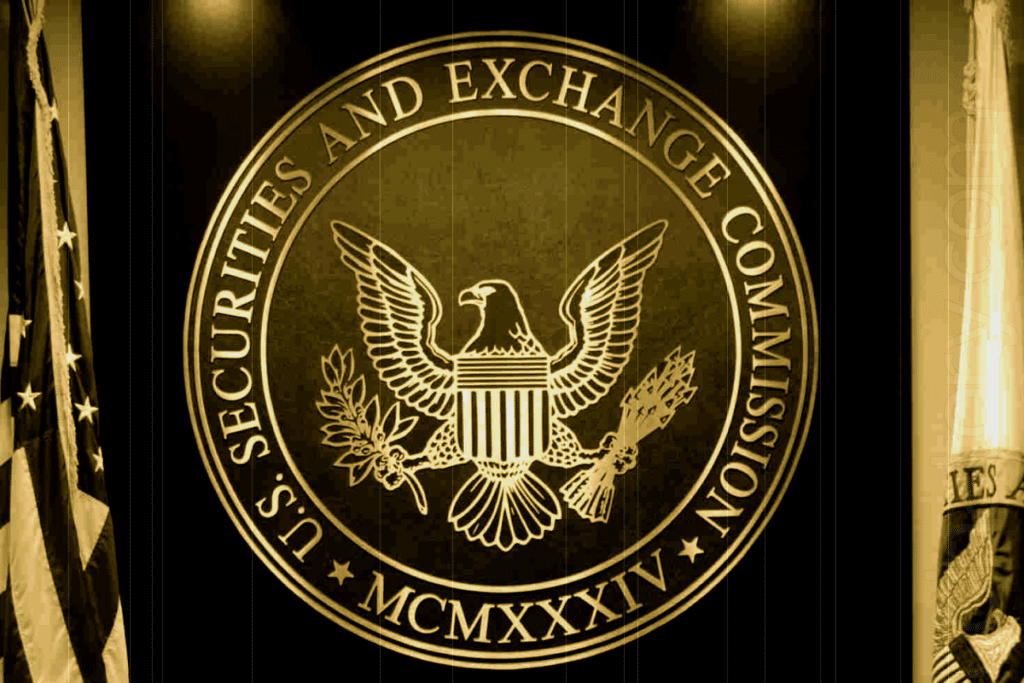
The U.S. Securities and Exchange Commission (SEC) is increasingly determined to regulate the crypto industry. While some investors believe that stricter regulations will contribute to legitimizing the sector, others worry that excessive intervention by regulatory bodies may undermine its decentralized appeal.
During the first half of 2023, Bitcoin (BTC) and other cryptocurrencies made a recovery after experiencing significant losses in 2022. Nevertheless, the persisting crypto winter has revealed vulnerabilities within the digital currency markets, such as excessive risk-taking, unlawful promotion of securities, and blatant fraudulent activities.
What Is The U.S. Securities and Exchange Commission?
The U.S. Securities and Exchange Commission is a federal agency responsible for overseeing and regulating traditional markets in the United States. It was established in 1934 in response to the economic turmoil of the Great Depression. The primary goals of the Securities and Exchange Commission are to safeguard the interests of investors and ensure the integrity, fairness, and efficiency of the financial markets.
The Securities and Exchange Commission plays a vital role in enforcing federal securities laws and overseeing the securities industry, as well as the stock and options exchanges in the United States. Under the leadership of Gary Gensler, the SEC’s primary objective is to ensure that public companies follow transparent practices. This involves ensuring that companies provide accurate and consistent information to investors, enabling them to make well-informed decisions regarding their investments. By promoting transparency and accountability, the Securities and Exchange Commission aims to create a fair and trustworthy investment environment for individuals and institutions.
The U.S. Securities and Exchange Commission is taking a prominent role in advocating for the application of comprehensive financial regulations to cryptocurrency markets. In April 2022, Securities and Exchange Commission Chair Gary Gensler expressed his view that the top five exchanges, which account for the majority of cryptocurrency trading, are likely engaged in trading securities. As a result, he emphasized the importance of these exchanges registering with the Securities and Exchange Commission and adhering to relevant laws.

Why Is The Securities and Exchange Commission So Important?
Located in Washington DC, the Securities and Exchange Commission holds a crucial position in shaping the future of the cryptocurrency industry. As the primary overseer of the U.S. financial markets, the decisions and regulations implemented by the Securities and Exchange Commission carry significant weight and influence over the trajectory of the crypto industry.
The SEC’s classification of specific coins as crypto asset securities can have far-reaching consequences. It determines their legal standing, trading methodologies, and overall perception within the market. This classification also has implications for investor safeguards and the taxation aspects of cryptocurrency transactions. Consequently, the SEC’s actions play a pivotal role in shaping the regulatory environment and establishing standards for the cryptocurrency industry in the United States.
The increasing crackdown on cryptocurrencies raises concerns about potential challenges for U.S. investors in trading their preferred digital assets, and it also poses a risk to the decentralized nature that initially attracted many crypto investors.
Nevertheless, numerous experts are of the opinion that clear regulations are necessary for cryptocurrency exchanges to instill a sense of security among investors. This sentiment arises particularly in the wake of several incidents over the past year, including the bankruptcy of numerous crypto exchanges, lenders, and funds. Having well-defined regulations can help establish a safer and more stable environment for investors to participate in the cryptocurrency market. By implementing such regulations, the aim is to strike a balance between maintaining investor protection and fostering the continued growth and innovation within the crypto space.
Securities and Exchange Commission vs Ripple
Ripple achieved a partial victory in its legal battle against the U.S. Securities and Exchange Commission, as a court ruling provided some clarity regarding regulations in the cryptocurrency industry. The U.S. District Court of the Southern District of New York determined that the sale of Ripple’s XRP tokens on exchanges and through algorithms did not qualify as investment contracts. However, the court concluded that the institutional sale of the tokens violated federal securities laws.
Following the ruling, XRP experienced a rally, and crypto exchange Gemini expressed the possibility of listing the token. Nevertheless, initial analysis from legal experts suggests that the ruling does not fully resolve the question of whether a digital asset meets the definition of a security under U.S. law and under what specific circumstances.
Securities and Exchange Commission vs Celebrities
In addition to targeting crypto exchanges and other platforms, the Securities and Exchange Commission has taken action against several celebrities for their involvement in illegally promoting cryptocurrency assets.
In October 2022, Kim Kardashian, a well-known celebrity, paid $1.26 million in penalties to the SEC for her role in promoting EthereumMax without disclosing the payments she received in exchange.
The list of celebrities facing similar charges continues to grow and includes individuals such as Jake Paul, a social media influencer, Lindsay Lohan, an actress, DeAndre Cortez Way (Soulja Boy), a musician, Aliaune Thiam (Akon), a musician, Floyd Mayweather Jr., a boxer, Khaled Khaled (DJ Khaled), a music producer, and Paul Pierce, a basketball player. These individuals have all faced legal action for their alleged involvement in unlawfully promoting cryptocurrency assets.
Related:Understanding Crypto Airdrops: Earning Money in 2023







